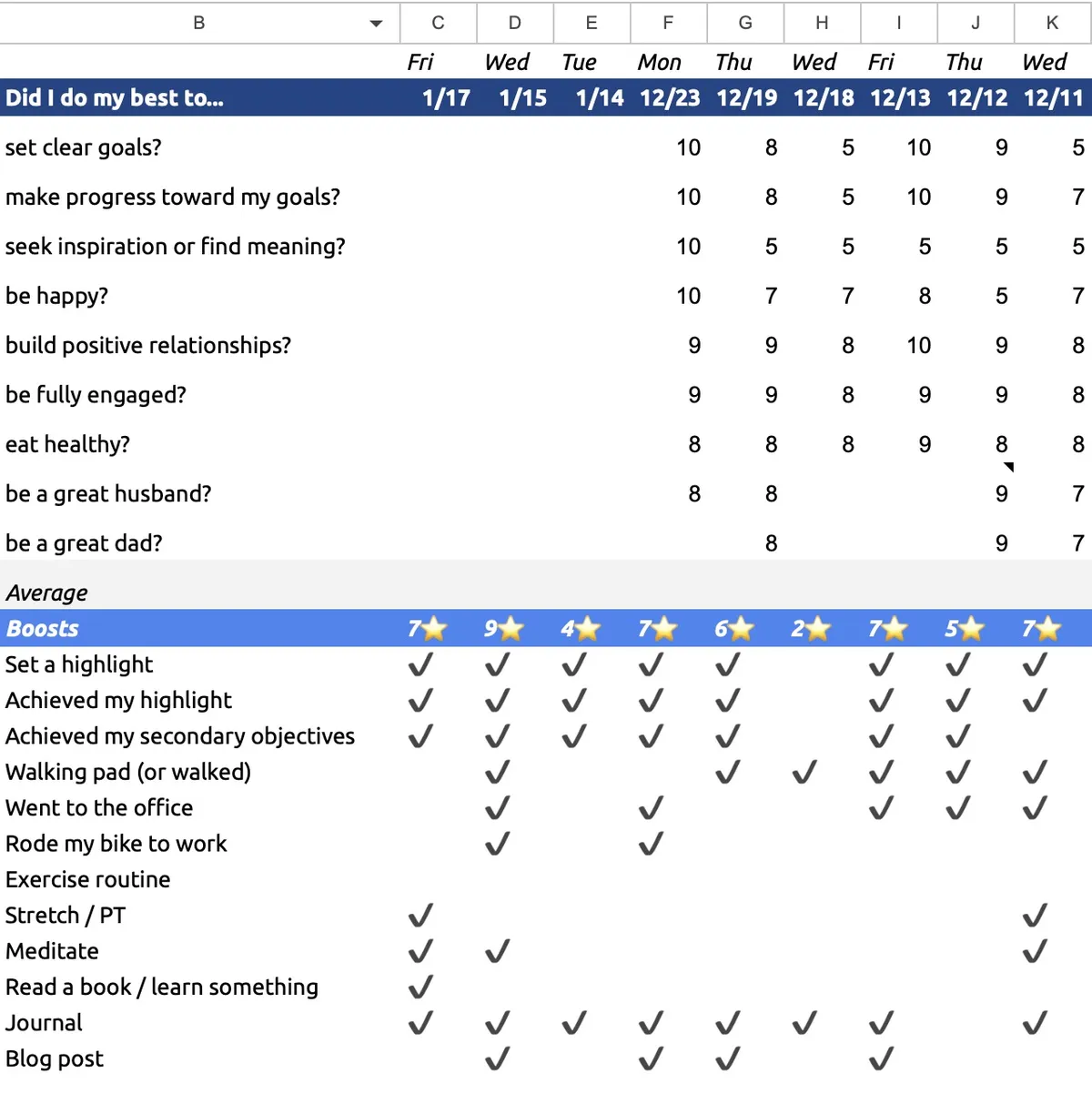Streak-based habit trackers
You know these apps. They insist you keep an unbroken streak of habit perfection going until … you die, I guess? My mother-in-law has something like a four-year streak going in Duolingo. I’m already mourning the day her phone breaks and it takes just over 24 hours to get a new one.
I’ve had an on-again/off-again relationship with these apps over the years. But recently I decided I’m done with them. A few days after making that decision, I received Oliver Burkeman’s latest newsletter, where he coincidentally covered the same topic. Excerpt:
In fact, I've come to believe that the every-single-day version of [habit tracking] (which novelists are especially guilty of dispensing) is actively terrible. You can guess why: an every-single-day rule is so rigid, so intolerant of the vagaries of life, that you'll inevitably soon fall off the wagon. And once that's happened, you lose all motivation to continue — so you end up doing less, in aggregate, than if you hadn't been quite so exacting in your demands. Instead, I'm a proponent of Dan Harris's excellent alternative, offered in the context of developing a meditation practice, but relevant to many other important goals in life: aim to do it dailyish.
Preach! Streak-based tracking seems engineered to make you feel bad. Is it realistic to do something on the same rigid cadence forever? And if not, then what does the streak count provide other than anxiety about the inevitable day when you fail, and your digital taskmaster wipes away all your hard-earned progress?
Or, let’s say you manage to keep this thing going indefinitely, like my wife’s mom. Is that good — to myopically prioritize a single habit forever while the importance of that habit is sure to vary over time? Wouldn’t it be better for the app to encourage you to do the opposite: to reevaluate your habits over time as reality unfolds?
Anyway, I’m no philosopher or guru. I just feel in my gut that this is not the way.
Instead
I’ve adopted a ménage à trois approach of advice I’ve gotten from three sources:
- PM reflection. At the end of each workday, I do a brief reflection exercise. Source: The Bullet Journal Method. (I don’t still bullet journal, but I’ve carried a few of the practices with me.)
- Daily questions. During that reflection exercise, I ask myself a series of scripted questions to help me reflect on whether I’m making progress against my most important goals. Source: Triggers by Marshall Goldsmith.
- More daily questions. I’m using a few specific reflection questions from 18 Minutes by Peter Bregman, which also covers an end-of-day reflection practice.
The template
I tweak it often, but here’s what it looks like at this moment:
{timestamp} PM reflection
- [ ] Review the day for critical tasks to finish *now*
- [ ] Review the inbox for critical emails to respond to
- [ ] Prep tasks for tomorrow
- [ ] Complete daily questions (this links to my questions sheet)
- Today's wins
-
- Did my actions line up with my intentions?
-
- What did I learn today? About myself? About others?
-
- What do I plan to do differently, or the same, tomorrow?
-
The top is tactical, to ensure I’m not overlooking something urgent from that day and that I’m not leaving a mess for the next morning. The rest is about reflection. The bottom three questions are from 18 Minutes.
And here’s what my daily-questions sheet looks like. This is the practice from Marshall Goldsmith. I’m experimenting with the checkboxes at the bottom vs. the numbers rating at the top. I’ve been slacking off on the numbers.

It occurs to me as I write this, though, that I like how Goldsmith sets up those top questions and gives flexibility with the number rating. The questions don’t ask whether you did a thing in a binary sense. They ask whether you did your best. Some days I don’t meditate because I just didn’t feel like it. That’s a lower score. Other days I don’t meditate because I’m wall-to-wall with priority meetings and focus work. On those days, I might score myself at an 8 or even a 10 because I was doing roughly my best, and that habit just didn’t make sense that day.
If there’s a habit I want to encourage, I add it to my daily questions list and celebrate “dailyish” success. I also remove stuff. If something’s no longer a priority, it’s gone. Or, if it’s actually become a habit, then it doesn’t need more encouragement, and it’s gone, too.
I’ve been happy with this work-in-progress practice. I’m able to keep my priorities top of mind while giving myself permission to roll with the day’s unpredictable punches. Bon voyage, streak anxiety.